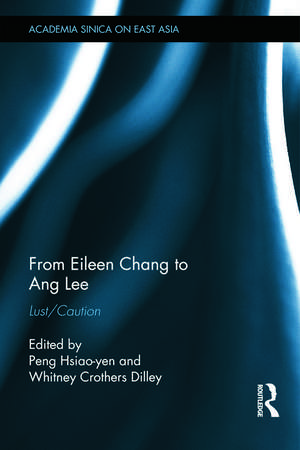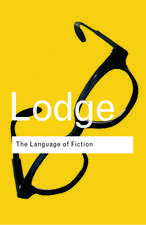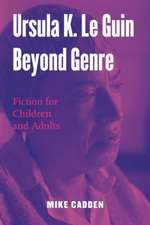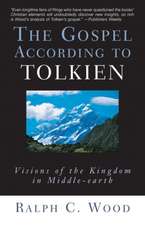From Eileen Chang to Ang Lee: Lust/Caution: Academia Sinica on East Asia
Editat de Peng Hsiao-yen, Whitney Crothers Dilleyen Limba Engleză Hardback – 9 ian 2014
This book analyses Ang Lee’s art of film adaptation through the lens of modern literary and film theory, as well as featuring detailed readings and analyses of different dialogues and scenes, directorial and authorial decisions and intentions, while at the same time confronting the intense political debates resulting from the film’s subject matter. The theories of Freud, Lacan, Deleuze, Bataille and others are used to identify and clarify issues raised by the film related to gender, sexuality, eroticism, power, manipulation, and betrayal; the themes of lust and caution are dealt with in conjunction with the controversial issues of contemporary political consciousness concerning patriotism, and the Sino-Japanese War complicated by divided historical experiences and cross-Taiwan Strait relationships.
The contributors to this volume cover translation and adaptation, loyalty and betrayal, collaboration and manipulation, playing roles and performativity, whilst at the same time intertwining these with issues of national identity, political loyalty, collective memory, and gender. As such, the book will appeal to students and scholars of Chinese and Asian cinema and literature, as well as those interested in modern Chinese history and cultural studies.
Preț: 822.36 lei
Preț vechi: 1104.23 lei
-26% Nou
Puncte Express: 1234
Preț estimativ în valută:
157.35€ • 164.31$ • 129.94£
157.35€ • 164.31$ • 129.94£
Carte tipărită la comandă
Livrare economică 15-29 aprilie
Preluare comenzi: 021 569.72.76
Specificații
ISBN-13: 9780415731201
ISBN-10: 0415731208
Pagini: 232
Ilustrații: 20 b/w images, 1 table and 20 halftones
Dimensiuni: 156 x 234 x 20 mm
Greutate: 0.59 kg
Ediția:1
Editura: Taylor & Francis
Colecția Routledge
Seria Academia Sinica on East Asia
Locul publicării:Oxford, United Kingdom
ISBN-10: 0415731208
Pagini: 232
Ilustrații: 20 b/w images, 1 table and 20 halftones
Dimensiuni: 156 x 234 x 20 mm
Greutate: 0.59 kg
Ediția:1
Editura: Taylor & Francis
Colecția Routledge
Seria Academia Sinica on East Asia
Locul publicării:Oxford, United Kingdom
Public țintă
Postgraduate and UndergraduateCuprins
Introduction Part I. Adaptation as translation, betrayal, or consumption 1. Montage of attractions: juxtaposing Lust/Caution 2. Two versions of Se∣Jie: fiction and film - views from a common reader 3. Sado-masochism, steamy sex, and Shanghai glitter: what’s love got to do with it? - a ‘philologist’ looks at Lust/Caution and the literary texts that inspired it 4. Cannibal, class, betrayal: Eileen Chang and Ang Lee Part II: Eros, subjectivity, and collective memory 5. Eros impossible and eros of the impossible in Lust/Caution: the Shanghai lady/baby in the late 1930s and early 1940s 6. Self as performance, lust as betrayal in the theatre of war 7. The "real" Wang Jiazhi: taboo, transgression, and truth in Lust/Caution Part III: Identity politics and global cultural economy 8. Becoming noir 9. Woman as metaphor: how Lust/Caution re/deconstructs history 10. The transnational affect: cold anger, hot tears, and Lust/Caution
Notă biografică
Peng Hsiao-yen is a Research Fellow at Academia Sinica, Taiwan.
Whitney Crothers Dilley is Professor in the Department of English, Shih Hsin University, Taiwan.
Whitney Crothers Dilley is Professor in the Department of English, Shih Hsin University, Taiwan.
Descriere
Ang Lee’s 2007 adaptation of Lust/Caution, became a trigger for heated debates on issues of national identity and political loyalty in the Sinophone media. Indeed, Ang Lee received harsh criticism for being unpatriotic whilst the film's leading actress, Tang Wei, was banned from appearing on screen for two years.
This book analyses Ang Lee’s film adaptation of Eileen Chang’s original story through the lens of modern literary and film theory, as well as featuring detailed observations of different dialogues and scenes, directorial and authorial decisions and intentions. The theories of Freud, Lacan, Deleuze, Bataille and others are used to identify and clarify issues raised by the film related to gender, sexuality, eroticism, power, manipulation and betrayal; the themes of lust and caution are dealt with in conjunction with the controversial issues of contemporary political consciousness concerning patriotism and the Sino-Japanese War complicated by divided historical experiences and cross-Taiwan Strait relationships.
The contributors to this volume cover translation and adaptation, loyalty and betrayal, collaboration and manipulation, playing roles and performativity, whilst the same time intertwining these with issues of national identity, political loyalty, collective memory and gender. As such, the book will appeal to students and scholars of Chinese and Asian cinema and literature, as well as those interested in modern Chinese history and cultural studies.
This book analyses Ang Lee’s film adaptation of Eileen Chang’s original story through the lens of modern literary and film theory, as well as featuring detailed observations of different dialogues and scenes, directorial and authorial decisions and intentions. The theories of Freud, Lacan, Deleuze, Bataille and others are used to identify and clarify issues raised by the film related to gender, sexuality, eroticism, power, manipulation and betrayal; the themes of lust and caution are dealt with in conjunction with the controversial issues of contemporary political consciousness concerning patriotism and the Sino-Japanese War complicated by divided historical experiences and cross-Taiwan Strait relationships.
The contributors to this volume cover translation and adaptation, loyalty and betrayal, collaboration and manipulation, playing roles and performativity, whilst the same time intertwining these with issues of national identity, political loyalty, collective memory and gender. As such, the book will appeal to students and scholars of Chinese and Asian cinema and literature, as well as those interested in modern Chinese history and cultural studies.


























